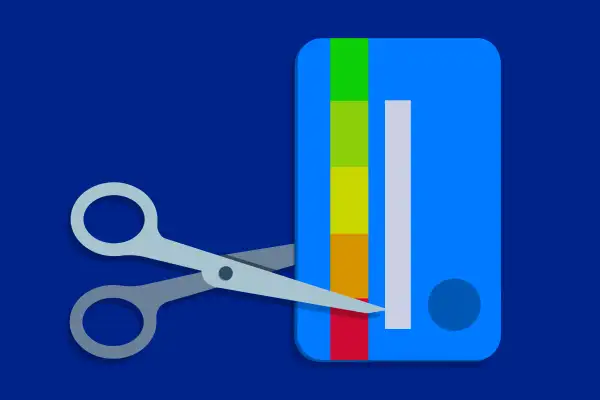True or False? Canceling a Credit Card Hurts Your Credit Score

Every now and then, most of us will sort through our credit cards and question whether we really need so many. You might want to get rid of some of your cards to avoid paying annual fees for cards that you don't use much, you might just be trying save time paying your bills or you may just want to reduce clutter in your wallet.
However, some people will be hesitant to to cancel their credit cards, for fear that it can hurt their credit score. In most cases it won't, and here's why:
To realize why canceling a card won't usually hurt your credit score, you need to understand the basics of how credit scores work. Your credit score is just a number that's designed to represent your likelihood of repaying a loan. That number is created from data in your credit history, which includes all of the current balances and past payment information from your credit cards and other loans, as well as your past payment history. There's lots of factors used to create your credit score, but in general, the less you owe and the fewer late payments you've made, the better your credit score will be.
But there's a popular myth that canceling your credit card will make your account history disappear. It doesn't. Both your currently open accounts as well as the accounts that you've closed will remain on your credit history, and impact your credit score for years to come.
So what changes when you cancel a credit card? First, you will be giving up one of your lines of credit, reducing the amount of credit you've been extended. With less available credit, whatever debt you have will become a greater portion of your available credit limit. To the credit scoring formulas, this could make it appear as if you're living closer to the edge of your available borrowing limits. If you have just a a few credit cards, and you have a significant amount of debt, then there is the chance that canceling one of the cards will hurt your credit score. But the effect isn't nearly as bad as missing payments.
For those who have very little or no debt, and those who have plenty of available credit with their other credit card accounts, this effect will be negligible. That's because your debt-to-credit ratio won't change much when you have very little debt. For example, if you have just $2,000 in balances on your credit cards (which initially appears as debt, even if you avoid interest charges by paying it off in full every month), and you have $50,000 in available credit spread across five different credit cards, then you have just a 4% debt-to-credit ratio. By canceling one card with a $10,000 credit limit, your debt-to-credit ratio will only rise to 5%, which is still considered to be very low.
By contrast, if you had $5,000 in debt and just two cards with a $10,000 credit line on each, canceling one of those two cards would cause your debt-to-credit ratio to rise significantly — from 25%, which is still considered to be okay, to 50% which is too high for many people to maintain excellent credit.
For better or for worse, the account along with your payment record will remain on your credit report for many years to come. Closing the account doesn't hide late payments you may have made, or remove a long term record of on-time payments either.
Which brings up another myth. Some believe that closing your oldest account will hurt your credit score. It's true that FICO, a frequently used credit scoring company, bases 15% of its scores on a person's length of credit history. But since an account remains on your credit history even after it's closed, then closing it has no effect on your credit score. And besides, 15% is a very minor factor compared to the 30% that's based on amounts owed or the 35% that's based on your payment history.
Alternatives to canceling a credit card
Even though canceling a credit card is unlikely to affect your credit, it still can if you have a small number of accounts, a significant amount of debt or both. But thankfully, there are ways that you avoid some of the problems of having a specific credit card without actually closing the account. For example, if the card has an annual fee that you can no longer justify paying, you can ask to have the fee waived. Sometimes a card issuer will do so, or give you cash back or other rewards that are equal in value to the fee. Another option is downgrading the card to to a similar version that has no annual fee. You'll keep the same account number and it will make no difference on your credit report, but you'll enjoy less generous rewards and fewer benefits.
And if your issue is that you're having trouble managing too many cards, try using features such as electronic statements and auto-pay to reduce your administrative workload. In the end, you should never have more cards than you can manage, and most people shouldn't be afraid of hurting their credit by closing an account.
